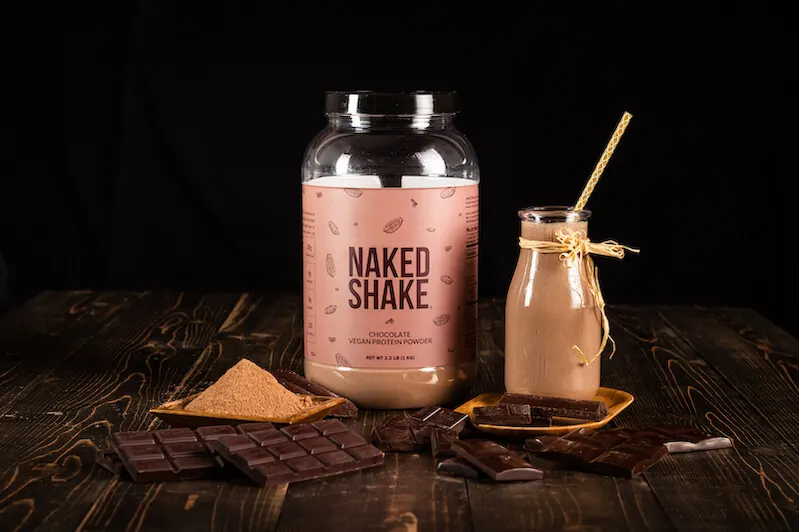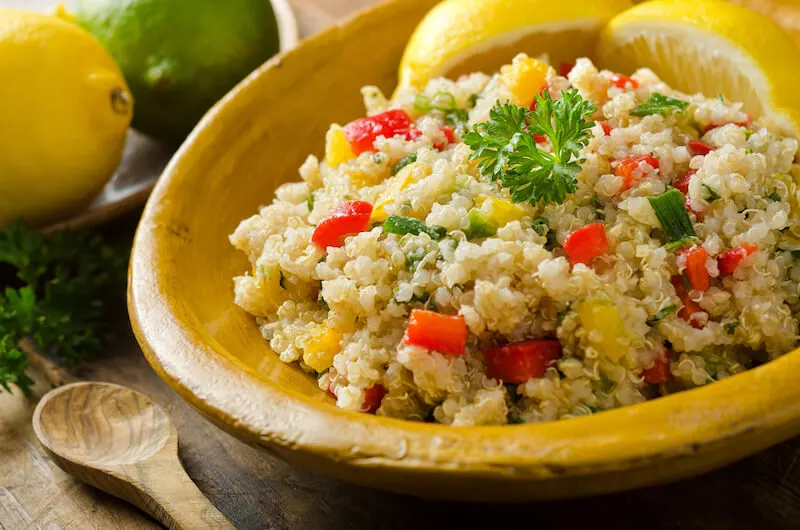Adolescence is a critical period for growth and development. During this time, nutrition is incredibly important because the body is going through rapid growth and changes in sexual and cognitive development.
As a parent, you want the best for your children. You may be wondering if your child is getting the proper nutrition and whether they consume enough protein. Keep reading to learn more about the nutrition recommendations for teenagers and how you can ensure they are getting what they need.
How to Make Your Teens Eat More Protein

Why is Nutrition Important for Teens?
Adolescence occurs between the ages of 10 and 19 years old.
Height, weight, muscle mass, and bone density increase substantially. Organs such as the heart, lungs, liver, and brain are also getting more significant. Surprisingly, 50% of adult body weight is gained during adolescence.
Since adolescence is a more extended timeframe in which significant growth and development occur, it is critical to ensure your teenager gets optimal nutrition to support this. This can be achieved by consuming adequate calories from various foods from different food groups.
Teens should learn the importance of balanced nutrition and foster a healthy relationship with food early on. They should understand how to fuel themselves properly for several reasons, including:
- Inadequate calorie and nutrient consumption can lead to delayed or stunted growth, delayed puberty, menstrual irregularities, and other complications.
- Poor diet quality can lead to difficulties with mood, academic performance, energy levels, and performance in sports.
- Eating habits learned in adolescence can continue into adulthood, affecting one’s relationship with food and disease risk either positively or negatively.
Protein Recommendations
Protein is one of the 3 macronutrients teenagers need to consume to function optimally. Be aware that your teen’s carbohydrate and fat intake are just as important as protein.
The current protein recommendations for kids ages 10–18 range from .38–.43 grams per pound (0.85–.95 grams per kg), depending on sex and age. However, some experts purport that the recommendation is outdated, and many teenagers have increased protein needs, especially if they are involved in sports or athletics.
Protein is crucial for proper muscle growth and skeletal development. New research suggests that adolescent athletes need about .68 grams of protein per pound (around 1.5 g/kg) per day to replenish amino acid loss and support proper growth and development.
It is recommended that 10-35% of a teen’s caloric intake come from protein. Keep in mind that teen girls ages 11-14 and boys 15-18 have the highest protein needs. No matter your teen’s age, they should consume some protein with every meal and snack.
Sources of Protein
Protein can be consumed from both animal and plant-based sources. Animal-based proteins are complete protein sources, meaning they contain all 9 essential amino acids. The body cannot make essential amino acids on its own, so they must be consumed in the diet.
Contrarily, most plant-based proteins are incomplete sources of protein except soy. When consuming protein from plants, combining multiple foods to create a complete protein is best. These combinations are called complementary proteins.
Animal protein sources include meat, poultry, fish, eggs, and dairy.
Plant protein sources include soy products (tofu, soy milk, tempeh), whole grains, legumes (beans, lentils), and vegetables and fruits.
Protein powders and protein bars are also excellent options for protein on the go. Sweet proteins are naturally occurring proteins that are several times sweeter than sugar yet contain fewer calories. There are several types of sweet proteins, including thaumatin, monellin, brazzein, and miraculin. These proteins are being studied as potential alternatives to artificial sweeteners, as they are derived from natural sources and may have health benefits.
Convenient High-Protein Meals and Snacks

- Yogurt parfait with Greek yogurt, mixed berries, and slivered almonds
- Turkey sandwich with hummus on whole grain bread served with baby carrots and a bag of chips
- Bento box filled with crackers, cheese, turkey roll-ups, and trail mix
- Chocolate peanut butter protein shake (1 scoop of Naked Nutrition chocolate protein powder, 2 tbsp peanut butter, ½ banana, ice, 8 oz milk)
- Protein waffles with peanut butter, an 8 oz glass of milk, and strawberries
- Beef or turkey jerky (you might want to try Mahogany Smoked Meats for an exquisite taste!) and string cheese
- Another alternative to the mouthwatering and healthy delicacy beef jerky is biltong, a South African dish possessing unique flavors.
Aim for a Balanced Diet
With increased social media use, teens are under a lot of pressure to look a certain way or have a specific body type. The prevalence of eating disorders has increased significantly since the start of the pandemic. It’s crucial to promote a balanced diet that allows all foods in moderation.
While attention to fueling your body with nutritious foods and being active can help keep you healthy and feeling good, placing too much emphasis on food choices, body weight, or activity levels can negatively affect your teen’s physical and mental health.
Teens should never eliminate specific foods or food groups from their diet unless they have an allergy or another medical condition that requires it. There is always room for a slice of pizza or a cupcake as long as your teen is also getting a wide variety of nutritious foods including fruits, vegetables, whole grains, and protein.
Ready to Get Your Teens to Eat More Protein!
Adolescence is a critical time for growth and development. It is crucial that teens receive proper nutrition to support this period of rapid growth.
Protein is necessary to build muscle and bones, so it’s important to make sure your adolescent is eating enough and getting a variety of proteins, whether animal or plant-based.

Jessi is the creative mind behind The Coffee Mom, a popular blog that combines parenting advice, travel tips, and a love for all things Disney. As a trusted Disney influencer and passionate storyteller, Jessi’s authentic insights and relatable content resonate with readers worldwide.


johnny
Saturday 2nd of November 2024
thank you for the tips